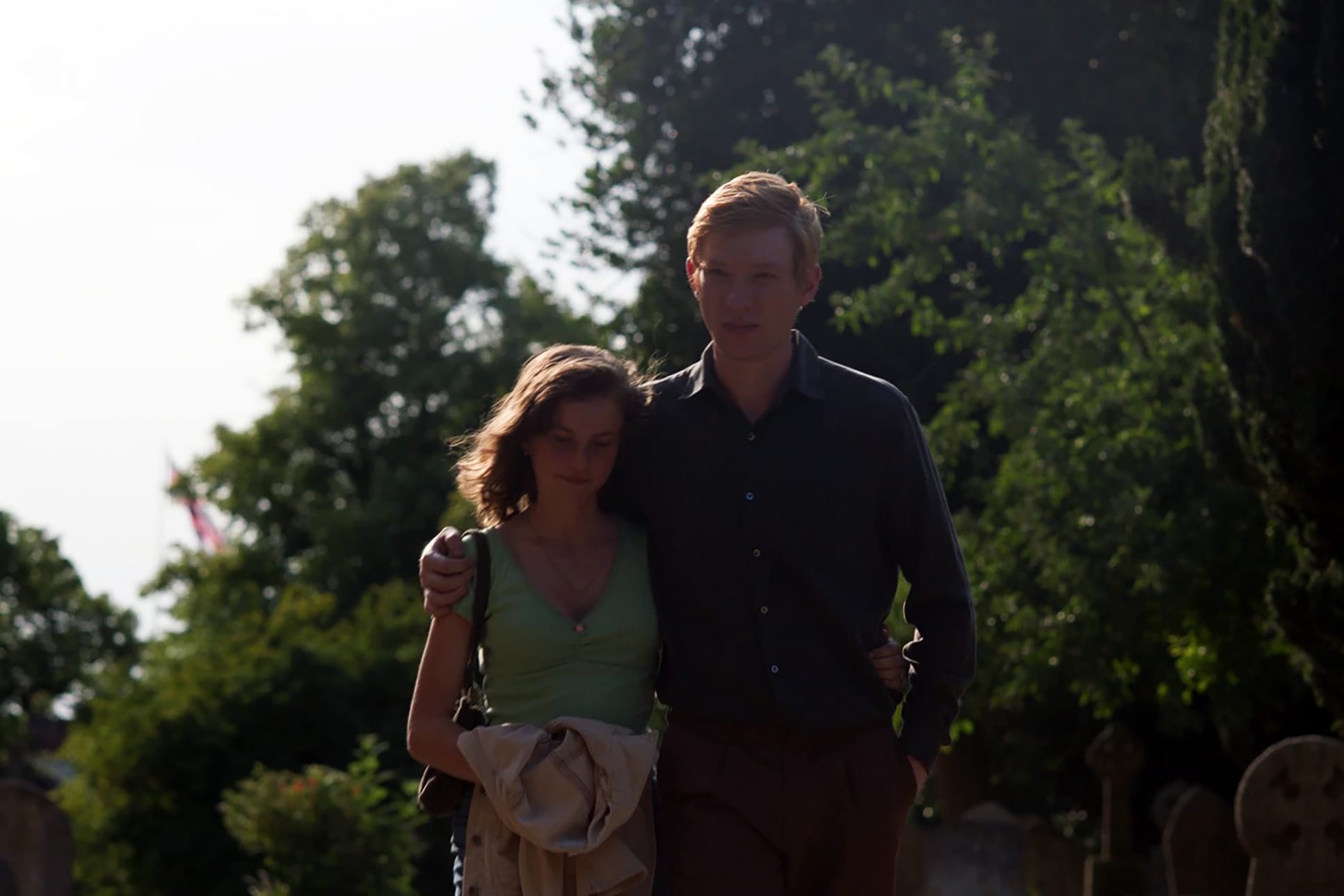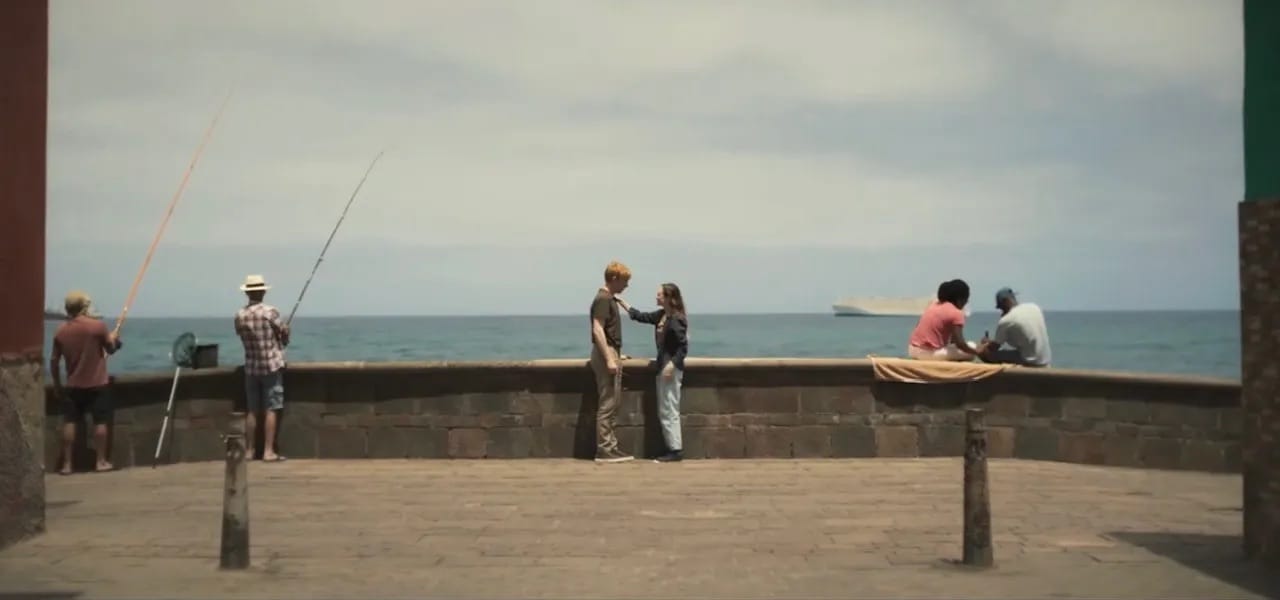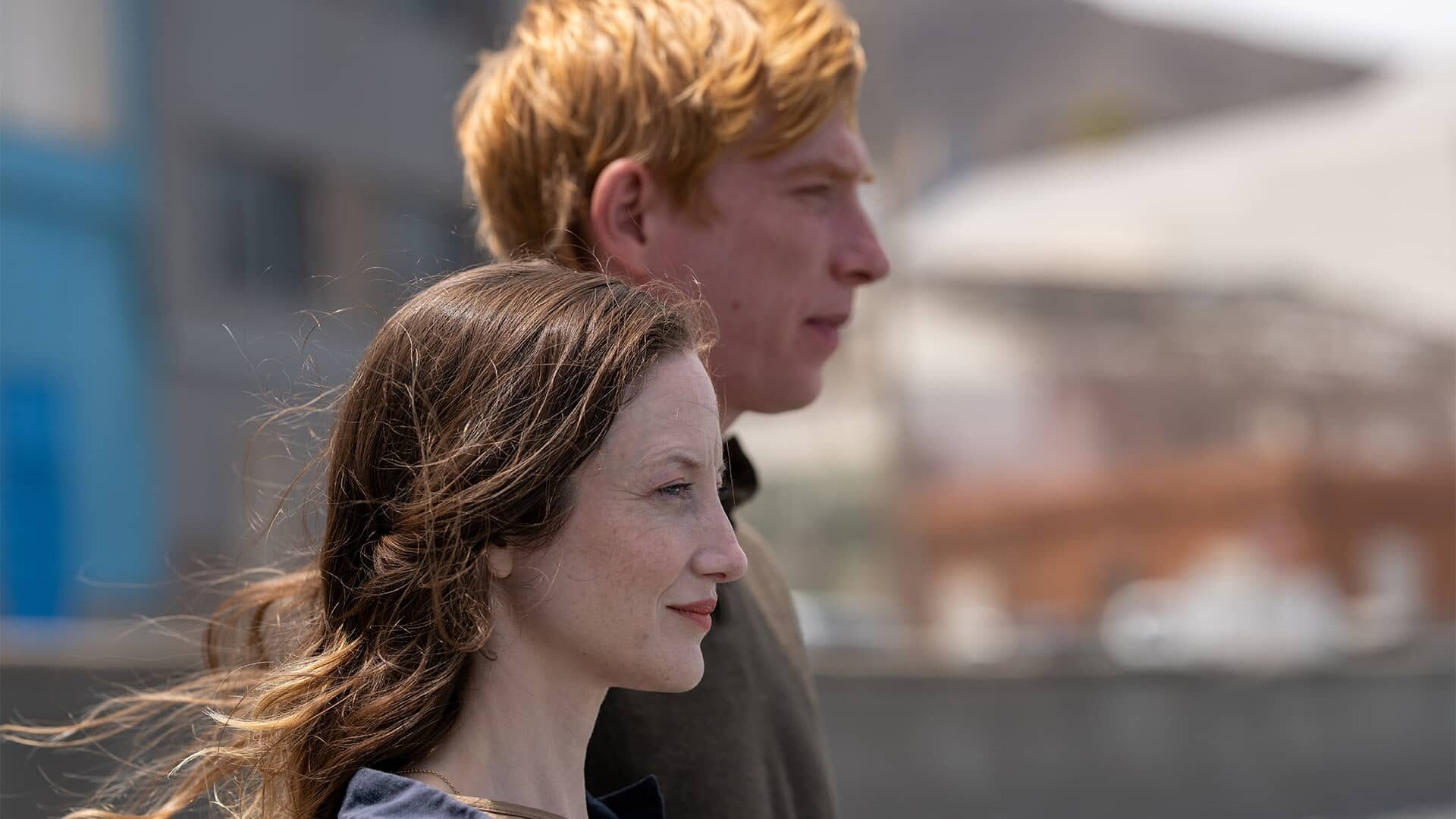The Unbearable Triteness of ‘Alice & Jack’s Finale

Congratulations to those who made it all the way to the end of Alice & Jack. You, like the rest of us, have discovered that your reward for putting up with all of that nonsense is.... a clip show.*
(Ed Note: I'm sorry, I can't stop laughing. I'm going to have to go edit Megan's recaps first and come back and finish this later.)
First, we go back to the beginning: 2007, when this whole messy affair began. New scenes are presented of Alice and Jack at their respective jobs before they both find each other on the dating app. Alice is a workaholic who grins goofily upon seeing Jack’s picture; Jack is a skeptic who claims to have an ethical problem judging people by their looks. Then, they meet up at the bar for their first date. (This adds absolutely nothing of value or interest to the story or their relationship.)
In the present day, Jack and Celia walk through a cemetery, discussing what plot to pick for Alice’s eventual gravesite. Jack relays Alice’s wishes that she be buried next to no one dull. Celia says, “I think the most important thing is that she’s not alone.” (Put a pin in that.)
(*Dohmnall Gleeson revealed in an interview before the series debuted on Channel 4 that it was originally filmed as eight 30-minute episodes, recut into six 45-minute installments at Ch4's behest. Do the math: that’s thirty minutes they had to create out of thin air and cut scenes! That at least explains the clip show, though it doesn’t in any way excuse it.)

Millie Ashford as Cecilia and Domhnall Gleeson as Jack in 'Alice & Jack'
Jack’s doctor (Clare Burt) informs him his aneurysm is larger, but it’s not time for alarm bells yet. Jack is not so convinced and asks whether his heart could explode. “Keep your heart rate below 160, avoid excessive stress and thoracic trauma, and you’ll outlive us all.” Alice, meanwhile, is not doing so well. She’s a permanent hospital resident now, drastically weakened, and her next treatment is supposed to make her hair fall out. Jack’s daily visits have filled the room with flowers, and he’s brought croissants which Alice has no appetite for. She asks about Jack’s “disease” – which means he came clean with her about that at some point. He says it’s fine, and Alice jokes she’s put in the work of dying, so he better not steal her thunder. (This does not feel like a joke.)
After Jack scratches her back – an excruciating moment where he drags his fingers ever so lightly down her back (why are their intimacies so weird?) – they snuggle in Alice’s hospital bed. She jokes she doesn’t want Jack with another woman after she’s dead. (This also does not feel like a joke.) He says he’s thinking of giving up work. Alice says he can’t; it’s his calling. Cue Jack’s supposedly romantic declaration: “You’re my calling. You’re what I believe in. The rest of it just doesn’t matter.” (Boo, hiss, groan!) Alice is moved; they kiss and cry. The actors do a good job of emotionality with genuine tears. If only we cared about these characters.
It’s a shame we don’t because Alice’s subsequent death is emotionally barren. This is not the actors’ fault, but rather a paucity in the writing of their flawed, selfish characters. Jack awakens to the incessant beeping of the machine Alice is attached to; her heart has flatlined. A nurse confirms there isn’t a pulse. Jack can’t understand; the doctors said she’d be fine for another couple of weeks. “Why’d she pass?” The nurse is kind and lets him feel his feelings. He continues to say Alice’s name as if it will wake her. Orderlies come in to collect her body, and Jack suddenly grabs at his side. He says he’s fine, then asks if this is the last time he'll see her. “There’s a viewing room downstairs. You’re more than welcome.” Jack follows as Alice is wheeled down the hall, into an elevator, down to a private room in the basement.

Andrea Riseborough and Domhnall Gleeson as the titular 'Alice & Jack'
Once they’re alone, Jack tucks the blanket up to Alice’s shoulders, and then the clip show begins in earnest. He remembers all the moments that hit the cutting room floor of their first date and every other “important” moment that didn’t, along with audio replays of Alice saying, “Whatever happens, I think we’re going to see each other again,” over a kissing montage that only serves to remind us how little chemistry the two actors have while Jack drifts off to sleep next to dead Alice.
He’s eventually kicked out when an orderly returns to start prepping Alice’s body. Jack asks if he can help, but it’s not permitted. He says his goodbyes, kisses her forehead, and declares, “I’ll see you soon, darling. To be continued.” It sounds lovely in his Irish brogue. Sadly, in a better show, this whole sequence following the death would be a welcome display of mature emotional processing. Taken on its own, it’s well-written (minus the clip-show bits); it’s rare in popular media to see grief given its own time to unfold.
Jack calls Celia from the garden outside the hospital. When he doesn’t reach her, he leaves a voicemail informing her of Alice’s death. He’s not doing well. He opens the shirt button at his neck and tries to get his heart rate down with memories of Cuba, where he and Alice reconciled, but Jack continually clutches at his chest. Sunlight suddenly washes over his face, and he laughs with relief. (Is he seriously going to die on this bench?)
(Ed Note: Yes, he’s seriously going to die on this bench.)

Andrea Riseborough and Domhnall Gleeson as the titular 'Alice & Jack'
We then see their chance meeting in Cuba as Jack remembers it all. There’s nothing profound about their reconciliation – it’s tiresome, we’ve seen enough of them – but at least it’s in a beautiful setting. They talk, hang out on a roof, and drink beers; Alice takes silly pictures in a photo booth. We return to Jack on the bench, and he’s leaning to one side, dead. He dies of a literal broken heart. This is not the achingly beautiful statement they hoped it would be; it’s just stupid. Apparently, love means dropping dead together.
There’s a short epilogue with Celia at two fresh, side-by-side graves. Here lies Alice and Jack. Good riddance. Later, while shredding her father’s various research documents, she comes across a shoebox filled with Alice memorabilia: the flier from the kite festival, the photo booth pictures of Alice, the note Alice left for Jack (“We’ll meet again”). Celia decides to keep the box.
Alice & Jack’s philosophy on “true love” is that it’s this unavoidable, immovable force you must bow to, and it’s totally okay to destroy others in its pursuit. That is obsession, not love. If, like me, your view fundamentally differs from creator/writer Victor Levin’s ideology, you too will find it insufferable. Alice, Jack, it’s been dreadful knowing you and enduring your hours of inane conversation. I hope we never meet again.





